Quickly Delete That Page in Google Docs (2 Minutes)
Everyone uses Google Docs – professionals, business owners, students. And honestly, we see the appeal. Not only can you create documents on the go, but you also enjoy anytime-anywhere access as all your data is stored on the cloud.
Considering we use this word processor on an almost daily basis, we often find unwanted pages sprawled across the main Google Doc page. Some are half-written pages of abandoned projects, while some are just…blank.
While having extra pages in Google docs isn’t that big of a deal thanks to its 15GB of free storage, it can still make browsing through your document list unnecessarily long, and of course, disorganized.
In this guide, we’ll tell you how you can delete a page in Google Docs in two minutes flat.
Are you ready? Let’s get started!
How to Easily Delete a Page in Google Docs
Trying to delete a page in Google Docs, and just can’t seem to figure it out?
It’s okay. We’re here to help.
Currently, there are three ways to delete a Google Doc page, and we’ll explain them all.
Method 1: Select and Delete the Text
This is hands down the fastest and simplest method to delete a Google Docs page. You have to highlight the text you want to delete and hit the Backspace key.
It’s easy to get carried away when you’re scrolling your cursor to select the text faster. So make sure you don’t end up deleting the text you actually need.
Step #1: Click and drag your cursor to highlight the unwanted text and images you want to delete.
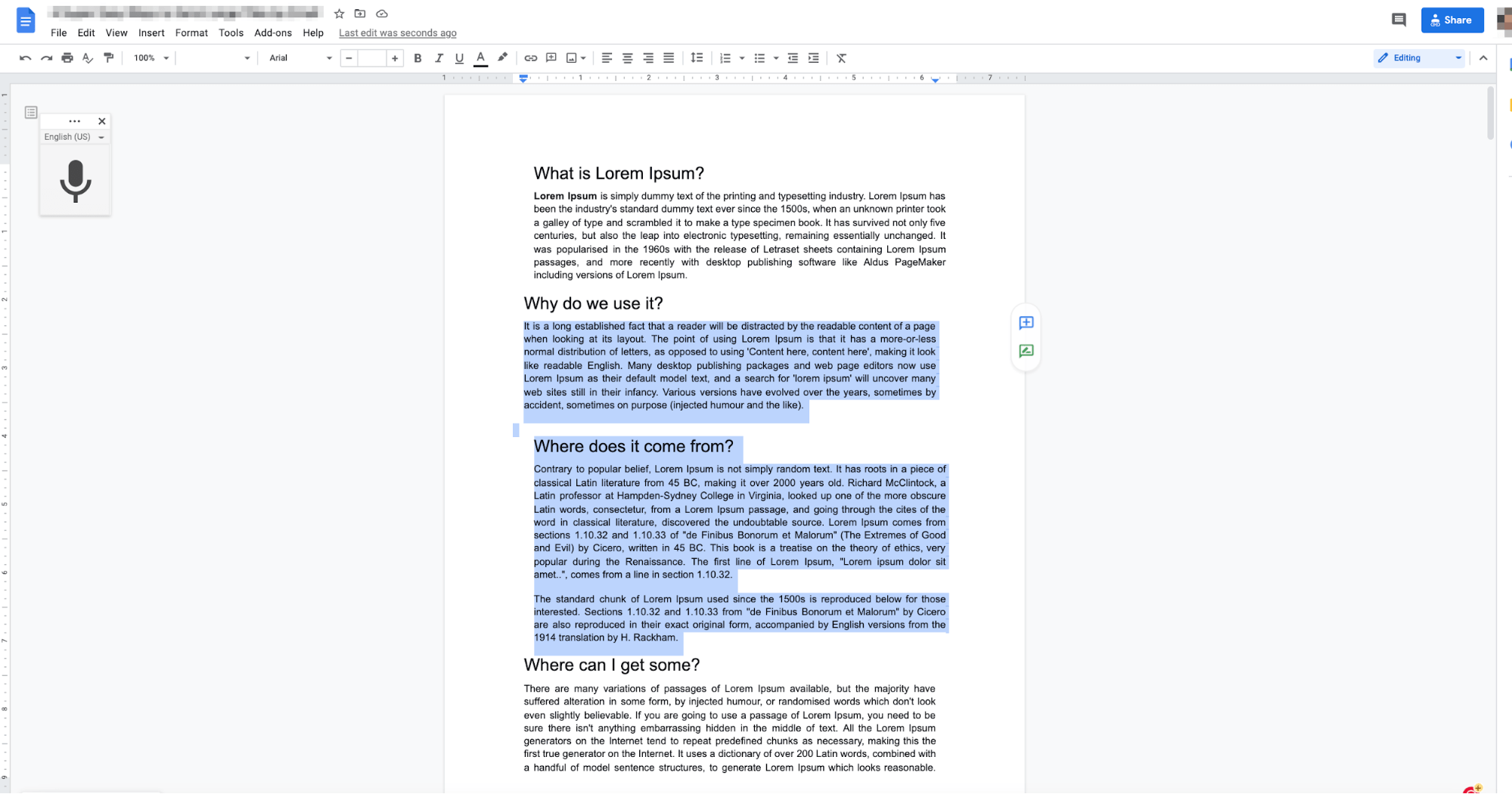
Step #2: Press the Backspace key or Delete key on your keyboard. All the highlighted content, along with the pages they cover, will be deleted.
This method also works when you want to get rid of random paragraphs. Eventually, when you keep on deleting unnecessary paragraphs, you’ll see your page number reduce as well.
Method 2: Delete a Page Break
Page breaks were introduced to make the formatting more convenient.
However, they can become very annoying very quickly when you have a blank page that you just can’t type on because you somehow added an unwanted page break that’s taking up the whole page. Ugh.
Don’t worry, though. Here’s how you can get rid of it:
Step #1: Place the cursor of your mouse after the blank space.
Step #2: Press and hold the Backspace key or Delete key on your keyboard. This will remove the unwanted page. Remove your finger only when the extra page is deleted.
That said, be careful while removing the page break as otherwise, you might end up deleting important sections you actually need. Keep an eye on the file you are pressing the Backspace button for to prevent any disaster.
Method 3: Adjusting the Page Margins
This is a slightly more in-depth method of deleting a page in Google Docs. But it’s the best option when you have one or two lines of text on the last page of your doc and don’t want to unnecessarily increase another page.
This is how you should go about it:
Step #1: Click on the File tab from the top menu bar. Select the Page setup option from the displayed options. A Page setup pop-up box will appear on your screen.
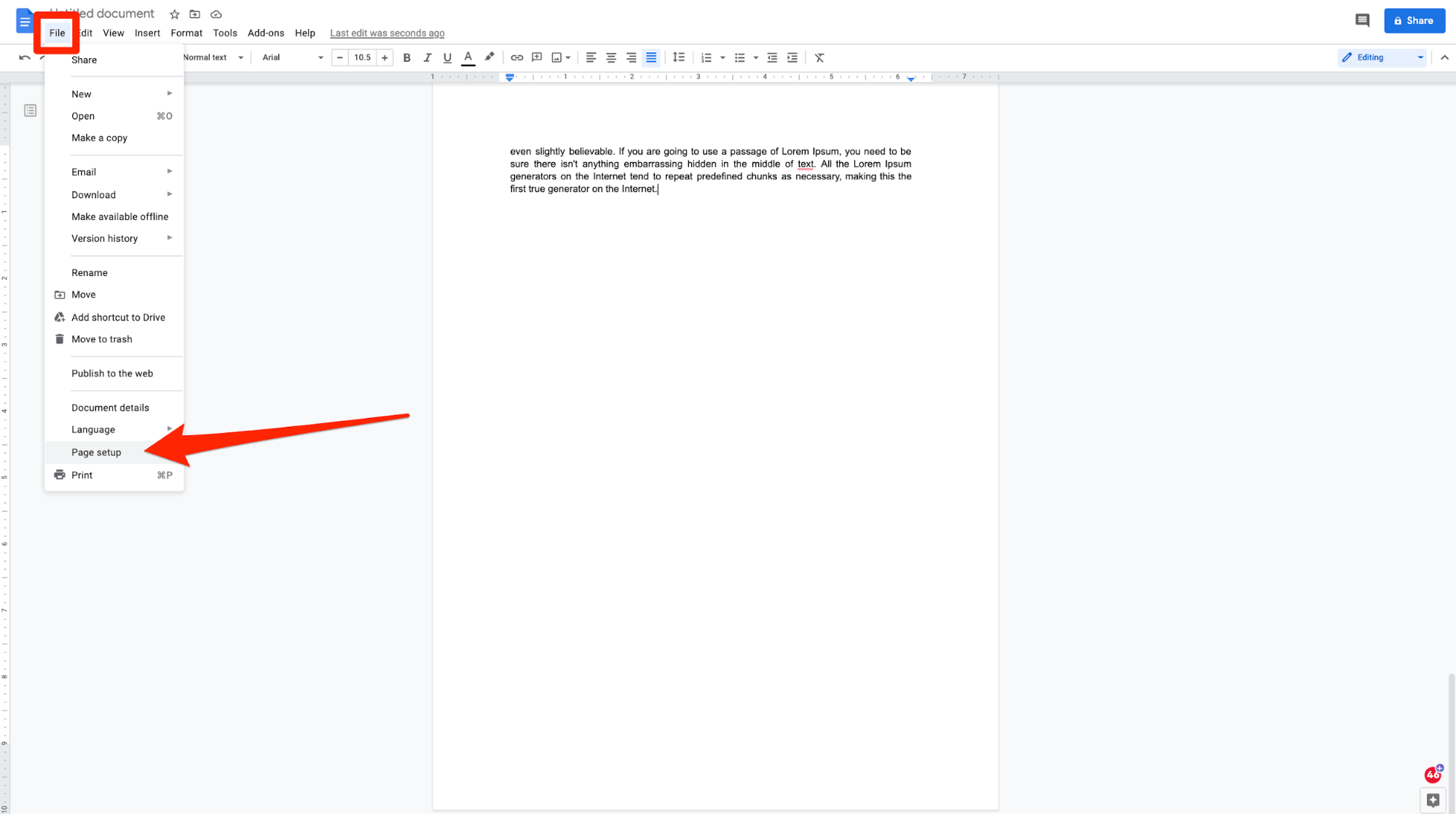
Step #2: You can adjust the margins, page orientation, page size, and page color from here.
We’re concerned with only the top, bottom, left, and right margins for deleting a page in Google Docs. Additionally, make sure you change the right and left margins at equal rates so that your text doesn’t end up off-center.
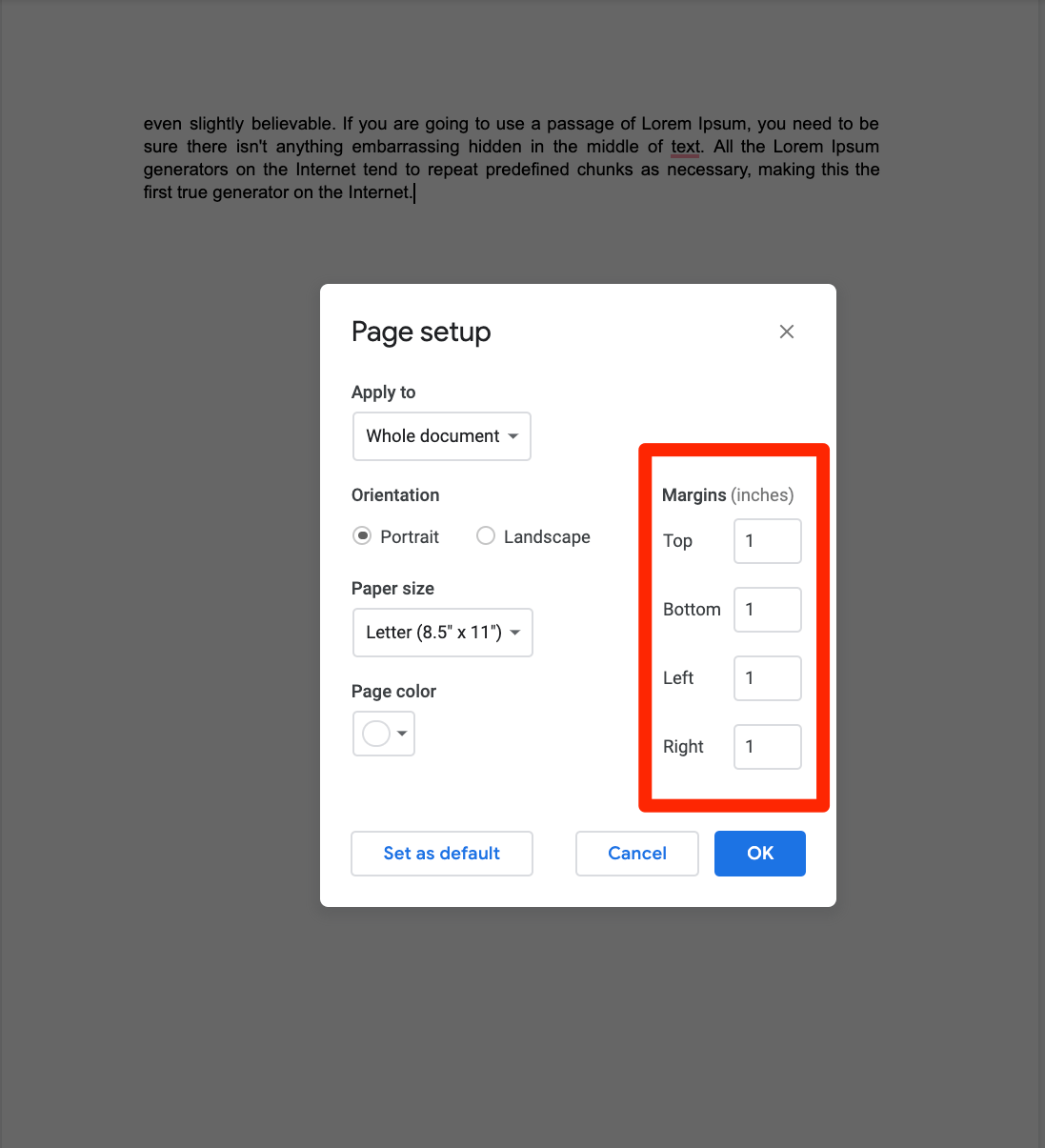
Alternatively, you can use the blue arrows located below the toolbar to adjust the margins. Drag the indent left or right on whichever side you want to remove the last page – all by adjusting your doc’s content.
How to Easily Delete a Page in Google Docs on Android Devices
Nearly every G Suite application has a mobile app version, and Google Docs is no exception.
The good news is that you can delete a page easily in the word processor even when you’re using your Android device. Here’s what you need to do:
Step #1: Open the Google Docs app on your Android. Search for the file where you want to delete the extra page.
Step #2: Highlight the text and image that you want to delete.

Step #3: Tap on the Backspace or Delete key on your phone keyboard.
They should immediately delete all of the highlighted text.
Alternative Method: Adjusting the Page Size
Step #1: Tap on the Settings option located in the top right-hand corner of your screen. A side menu will appear, showing you a host of options.
Step #2: Scroll down to look for the Page setup option. Tap on it.
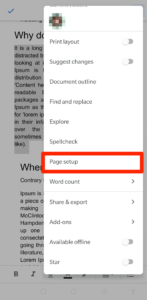
Step #3: You’ll see different options that allow you to change how your document looks. Tap on Paper size.
A wide range of paper size options, such as Letter (this is the default setting), Tabloid, Executive, A4, A5, and B5 will be displayed on your screen. Select any option you prefer. We recommend the Tabloid and A3 to make your text appear broader, which will also cut down the page count.
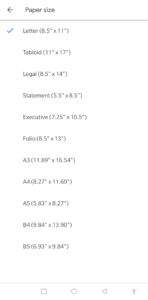
The new paper size setting will be saved automatically, removing the extra page with no extra effort.
How to Delete a Page in Google Docs on iOS Devices
You can download the Google docs app irrespective of whether you own an iPhone or an iPad. And just like in the case of Android, you can delete a page in Google Docs in just a few minutes.
Let’s take a look at how you should go about it.
Step #1: Search for the document you want to edit on the Google Docs app on your iOS device.
Step #2: Tap at the start of the paragraph you want to remove, and drag your finger down the screen at the end of the paragraph or section you want to delete.
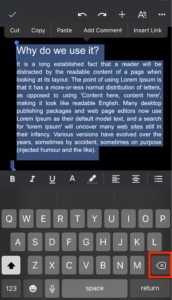
Step #3: Tap on the Backspace or Delete key on your phone‘s screen. Continue this for the other content portions you wish to delete.
Eventually, the deleted parts will reduce your word count, which, in turn, will cut down your page number.
Alternative Method: Adjusting the Page Size
Step #1: Assuming you have the document already open, tap on the three horizontal lines located on the top right-hand side of your iPhone or iPad.
Step #2: Scroll below the displayed options until you locate Page setup. Tap on it.
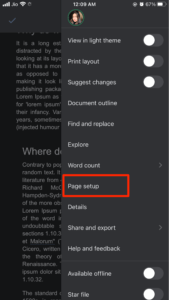
Step #3: Tap on Paper size.
Step #4: You can adjust your page margins by selecting between four options: Narrow, Default, Wide, and Custom.
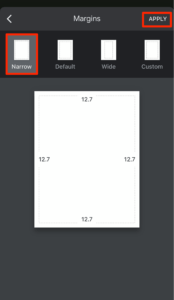
While you can always opt for customized margins, we’ll recommend clicking on Narrow as it gets the job done. Once you’ve made your selection, tap on Apply.
And that’s it! The extra page gets deleted in the document after the margins are adjusted. Your text will look something like this with the new paper size settings:
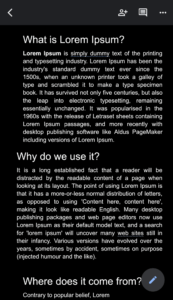
How to Remove a Blank Page in Google Docs
It’s common to end up finding blank pages when working on Google Docs.
You see, a new page is created automatically once you press the Enter key at the end of a text that’s located right at the end of a page. Read that again. But, at the same time, you may find yourself dealing with a blank page that’s right in the middle of a document.
Here’s how you can delete blank pages on Google documents in both circumstances.
Deleting a Blank Page at the End of the Document
We’re going to assume you’ve already opened Google Docs, and have finished writing the content. The steps below are what you should do after that.
Step #1: Place your cursor at the end of the last page. Press Enter.
You’ll find a new page gets created automatically.
Step #2: Click your cursor on the last page till the blinking line appears on your screen. It’ll look something like this:
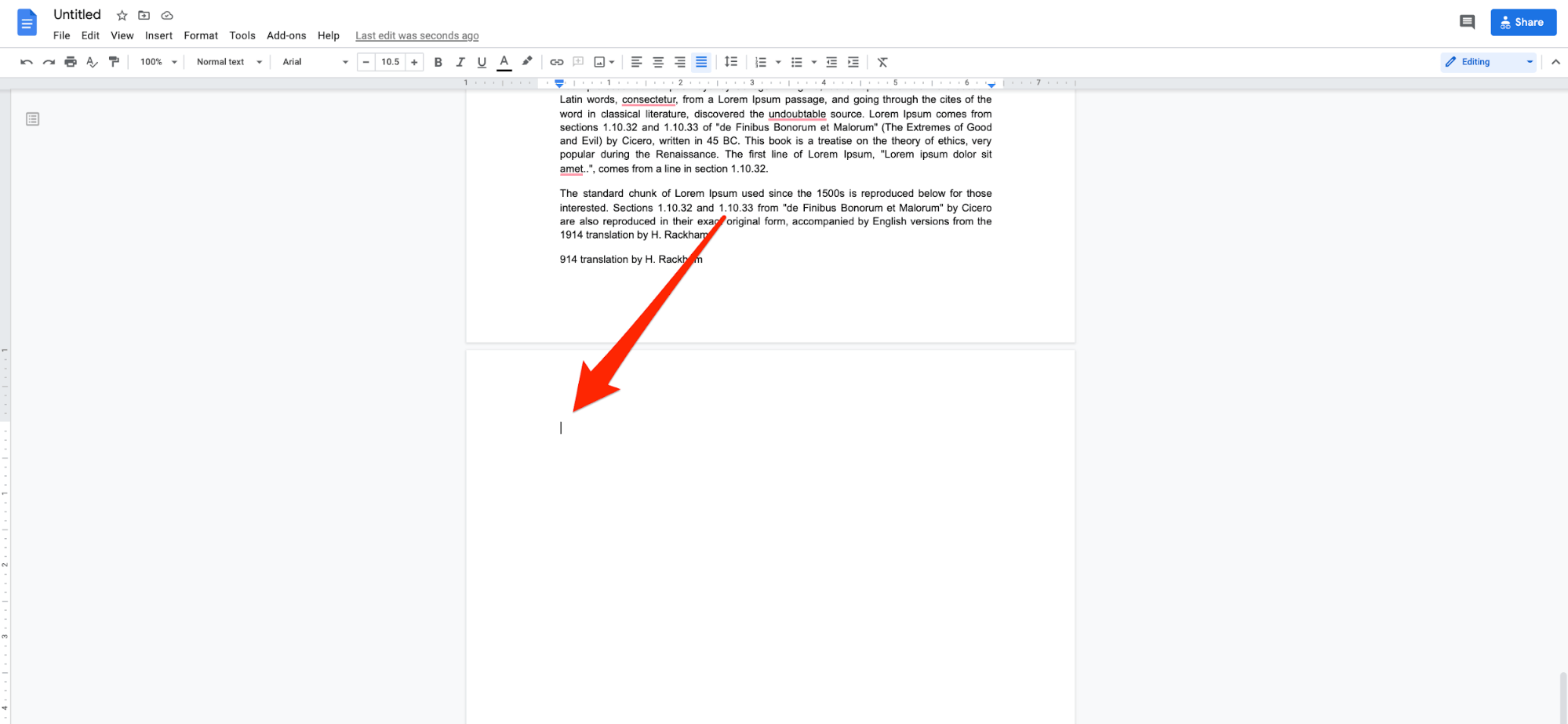
Press the Backspace or Delete button on your keyboard. This will remove the last page immediately.
Deleting a Blank Page in the Middle of the Document
When compared to deleting an empty page at the end of your content, deleting an empty page that’s in the middle of a document is slightly trickier.
Let’s take a look at how you can remove a blank page that’s in the middle of a Google Doc.
Step #1: Place your cursor at the starting point of the blank page and drag it down until it covers the whole blank page, or in other words, the beginning of your next paragraph.
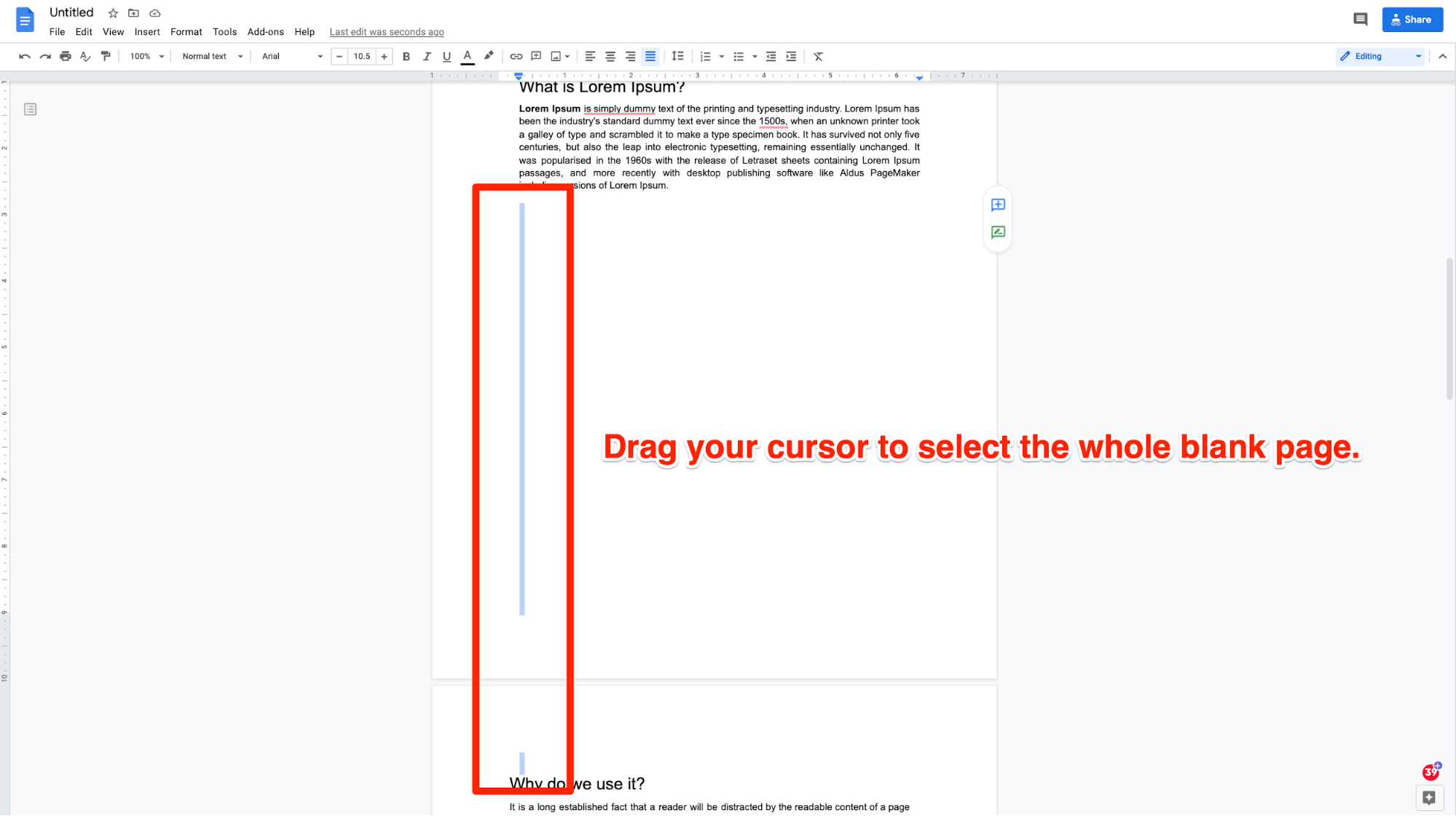
Step #2: Once you’ve selected the entire black page, press the Backspace or Delete button on your keyboard.
This will almost immediately delete your blank page as if it was never there.
Alternatively, you can also keep pressing the Backspace or Delete button until your blank page is filled with text from the next page. The only problem is that this is very time-consuming as opposed to just dragging your cursor.
What to Do When the Unwanted Page Doesn’t Go Away
While it’s highly unlikely for the unwanted page to not go away if you follow the above methods diligently, there are two tips using which you can prevent the unwanted page from happening in the first place. Additionally, they also help format a Google Doc document better.
Tip 1: Clearing Any Formatting
Clear formatting is a simple yet effective tool that lets you switch any text and layout preferences within your document to their default settings. This way, if you’d chosen an overly large font, its size will get decreased after clearing the formatting, which, in turn, will remove the extra blank page.
Step #1: Place your cursor at the beginning of the document and drag it to the very end so all the content is highlighted.
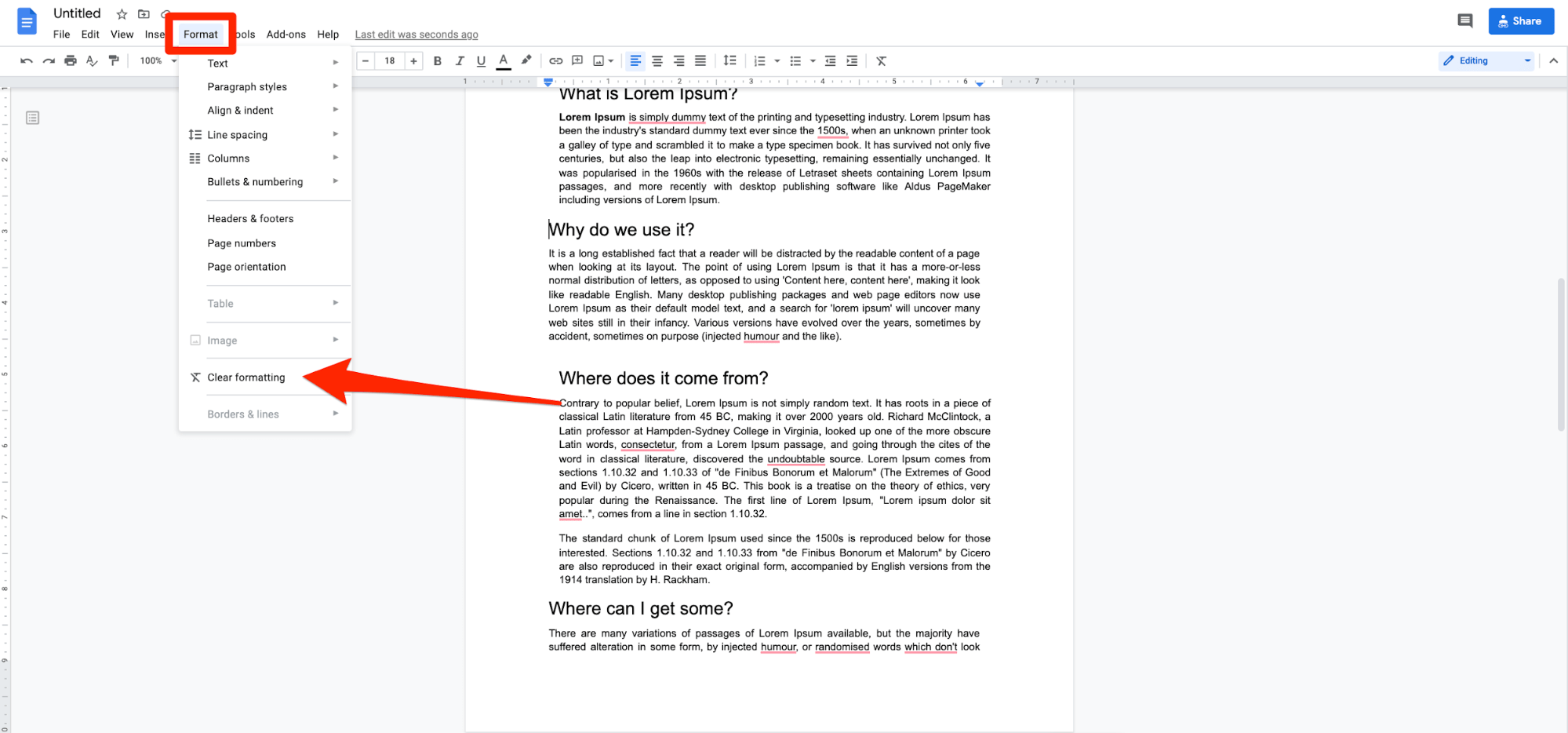
Step #2: Go to the Format tab on the top menu bar and click on Clear formatting.
Take a look at this image:

As you can see, the formatting is different for the two paragraphs. Similarly, when you also click on Clear formatting, the font, font size, and layout will change for the whole doc.
Tip 2: Using Section Breaks
Section breaks are the very foundation of a well-formatted document. Not only does it make your work appear neater, but there’s also more organization to the whole document. It also works exceptionally well to prevent any blank pages.
Below, we’ve compiled the steps of how you can implement section breaks into your Google docs.
Step #1: Click on the Insert tab. This is located on the top menu bar. A dropdown menu will appear.
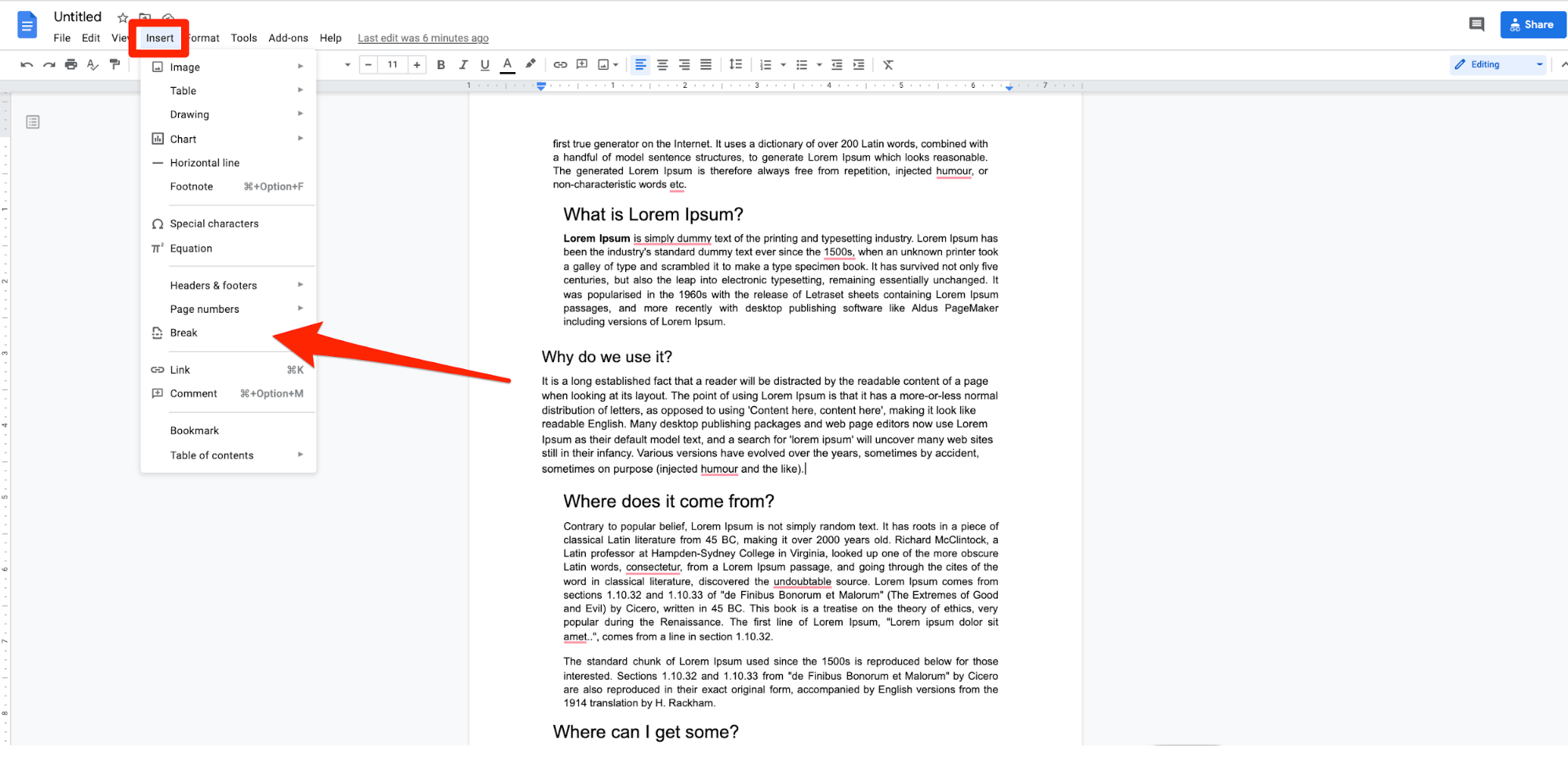
Step #2: Browse down and click on Break.
Step #3: You can choose the type of “break” you want from the Break menu.
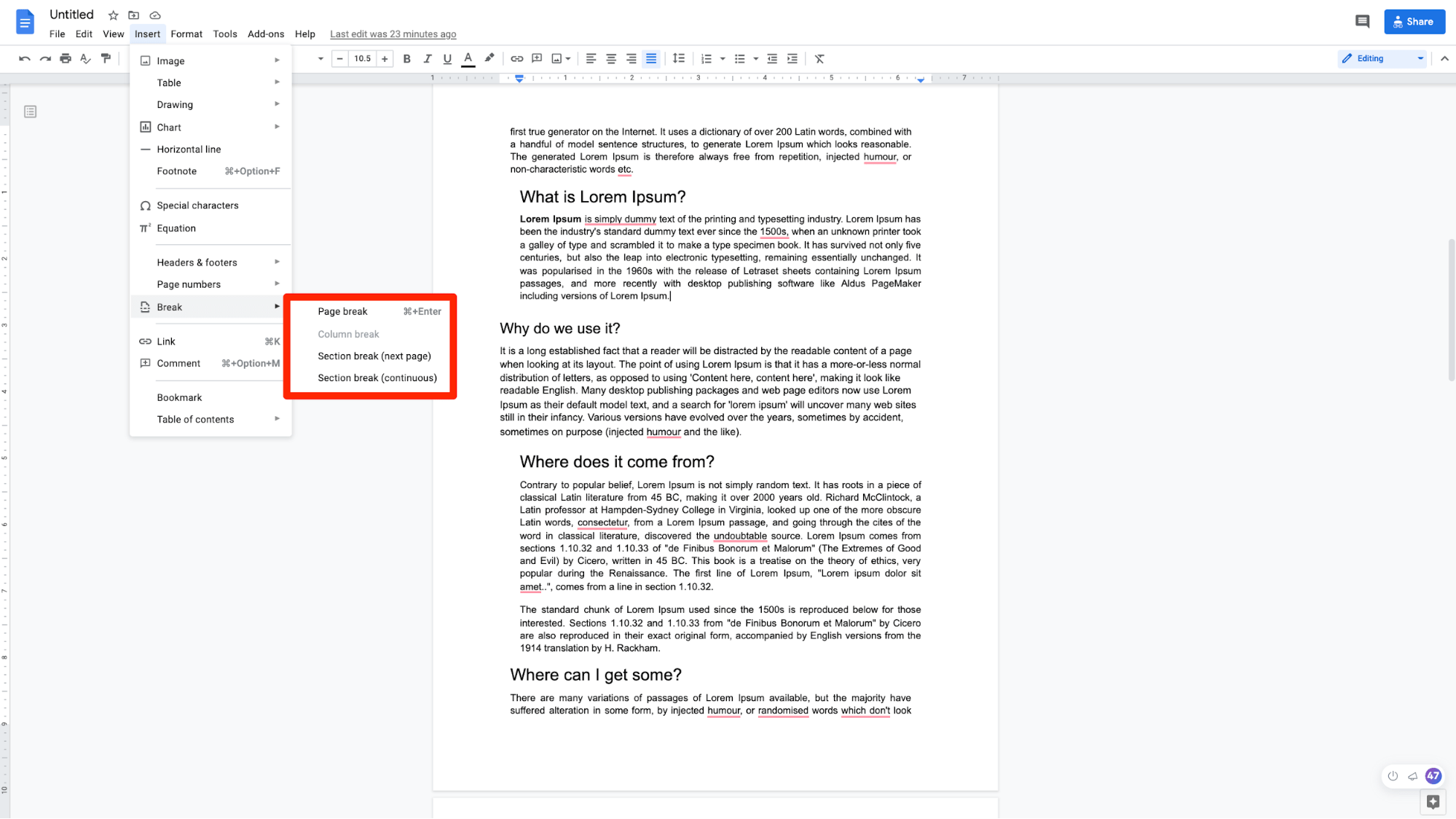
For instance, Page break creates a new page, Section break (next page) switches to the next page to add a new section, and Section break (continuous) starts a new section on the same page.
That’s all you need to do to break up your document into chunks without having to worry about any unwanted pages.

